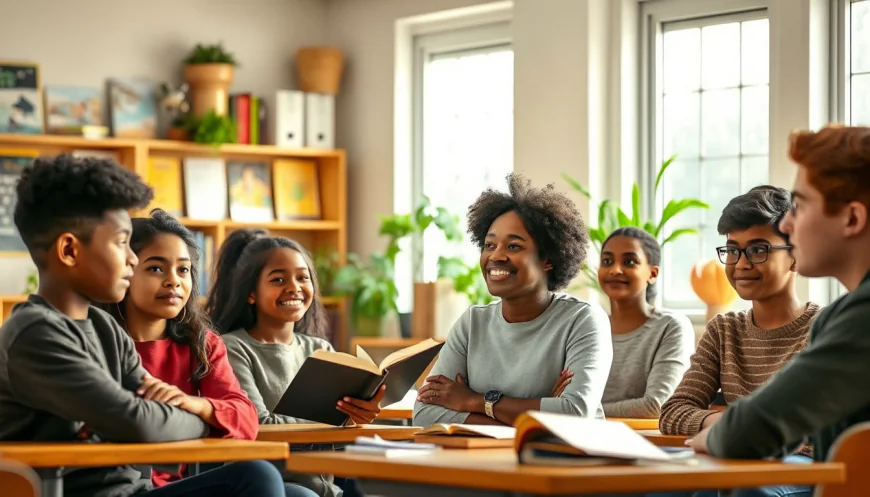Education is the Ability to Listen to Almost Anything Without Losing Your Temper
Think about the power of listening. It’s more than just hearing words; it’s about understanding, patience, and control. When you truly listen, you learn faster, build stronger relationships, and handle tough situations better. Mastering this skill can shape your growth and success in life. So, here's a question: Why is it so important to listen calmly, even when others test your patience? The answer is simple—because this ability is the foundation of emotional intelligence and good education.

The Significance of Listening in Education and Personal Development
The Role of Listening in Learning and Growth
Listening isn’t just about catching what’s said; it’s about digesting information. When you pay close attention, you remember things better and learn more quickly. Studies show students who develop strong listening skills tend to do better in school. They grasp ideas faster and make fewer mistakes.
A good leader known for success always emphasizes listening. They know that understanding others’ views helps make better decisions. Learning to listen well is a key to growth, both personally and professionally.
Listening as an Emotional Regulation Skill
Staying calm while listening is a real emotional skill. When you don’t lose your temper, conflicts often fade away instead of escalating. This helps your communication and your chances of having healthy relationships.
Research in psychology shows that emotional intelligence builds up when we listen patiently. It makes us more aware of our feelings and helps us control reactions. The more we practice calm listening, the better we become at managing stress and emotions.
Challenges to Listening Calmly and How to Overcome Them
Common Triggers That Test Patience
Frustration happens all the time—misunderstandings, provocations, work stress, or tiredness can push us to the brink. For example, a difficult customer might speak harshly, or a coworker might disagree strongly. These moments challenge our ability to stay composed.
Psychological Barriers to Effective Listening
Sometimes our mind works against us. We filter what we hear through biases or emotional reactions. Confirmation bias makes us ignore points that don’t match our beliefs. Negativity bias causes us to focus only on the bad parts. These mental filters make it even harder to listen with patience.
Strategies to Cultivate Calm Listening Skills
The good news? You can develop better listening habits. Practice mindfulness to stay present in conversations. Use deep breathing to calm nerves. When someone speaks, try paraphrasing their words or asking clear questions to show you’re engaged.
Another trick is to reframe your thoughts. Instead of thinking “this will annoy me,” tell yourself, “I can handle this calmly.” These small steps build your ability to listen without losing your temper.
Practical Techniques to Enhance Listening and Maintain Composure
Building Empathy and Perspective-Taking
Seeing the world through someone else’s eyes reduces anger and increases understanding. When emotions spike, pause and ask yourself, “What is this person really feeling?” Empathy helps you stay patient even during tough talks.
Effective Communication Skills
Non-verbal cues like nodding or eye contact show you’re interested. Being patient also means allowing silences. Sometimes, giving others time to finish their thoughts prevents frustration.
Actionable Tips for Real-Time Management
Watch out for signs of boiling anger—like clenched fists or raised voice. When you notice them, take a quick break or pause. Use mental checklists to stay focused on listening goals, instead of reacting impulsively. A simple deep breath can buy you time to respond calmly.
Educational Methods and Tools to Foster Listening Skills
Incorporating Listening Exercises in Curriculum
Schools can teach listening through role-playing and activities that mimic real-life talks. For instance, students practice active listening by repeating what they hear. Teachers can share case studies where patience changed outcomes in communication.
Leveraging Technology to Improve Listening
Podcasts, audiobooks, and listening platforms make it easier to practice paying attention. Digital apps that focus on mindfulness and emotional control support ongoing development of patience skills.
Training Programs and Workshops
Many programs now focus on teaching patience and listening. These often include role-playing, group discussions, and self-reflection. Regular practice in a safe space makes these skills stick.
The Impact of Cultivating Listening Skills on Broader Society
Enhancing Relationships and Conflict Resolution
Better listening builds trust. Communities that focus on understanding each other tend to solve problems faster. When conflicts are resolved through calm listening, everyone benefits.
Promoting Inclusivity and Understanding
Listening without losing your temper helps you appreciate different perspectives. It creates space for more voices to be heard, making society more open and fair.
Leadership and Educational Success
Great leaders know that listening is a core strength. Think about teachers, managers, or politicians who excel by truly hearing others. Patience and understanding create stronger teams and better learning environments.
Conclusion
Active listening isn’t just about hearing words; it’s about mastering patience, emotional control, and understanding. Developing this skill improves your growth, relationships, and leadership. When you learn to listen almost everything without losing your temper, you open doors to endless opportunities.
Start practicing today. Embrace every conversation as a chance to learn and connect. Cultivate patience, stay calm, and watch how your world transforms. Better listening makes a better you—and a better society.



 VARSHITHA
VARSHITHA